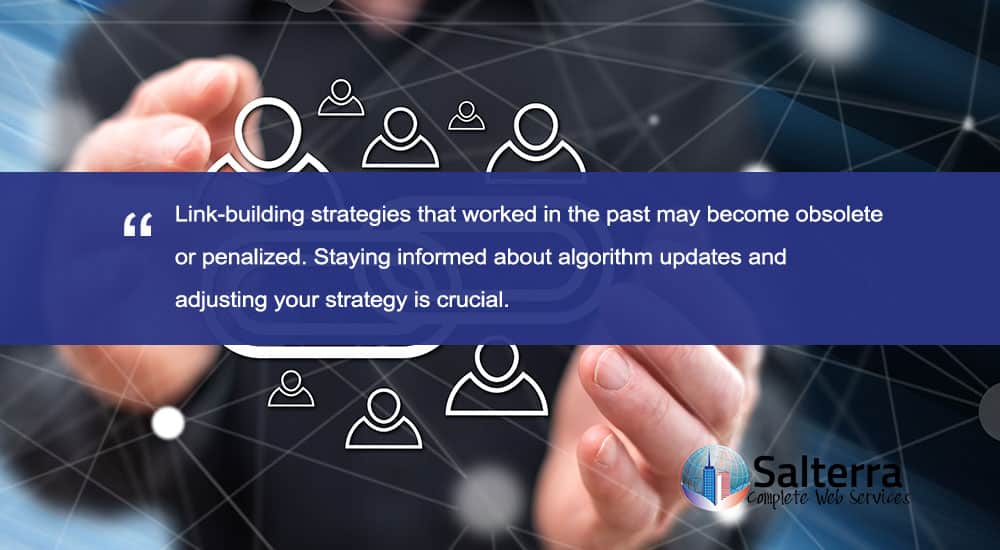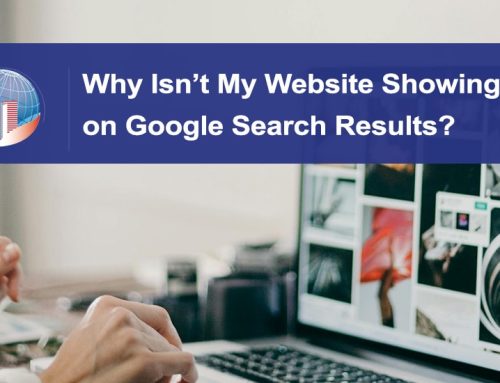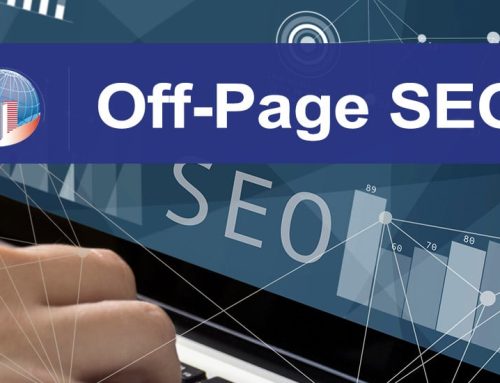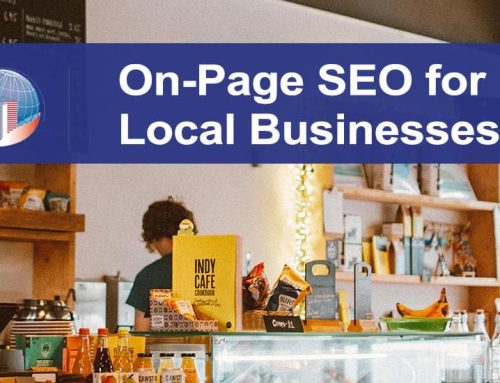
Link building is a cornerstone of search engine optimization (SEO). It involves acquiring hyperlinks from other websites that are on your own. These links, often called “backlinks,” act as a vote of confidence, signaling to search engines like Google that your content is valuable and trustworthy.
Link building is essential to SEO because it significantly determines how search engines rank web pages. Without a strong backlink profile, high-quality content can struggle to gain visibility in search results.
Why Link Building Is Important
Boosts Website Traffic and Metrics
Link building boosts traffic and website metrics. High-quality backlinks from authoritative sites can direct significant referral traffic to your website. This enhances visibility and builds trust among visitors who arrive through reputable sources.
For example, if an industry-leading blog links to your content, readers of that blog are likely to click the link and explore your site, increasing both traffic and engagement metrics.
Improves Search Engine Rankings
Link building is important because it is a major factor in how Google ranks web pages. Google’s algorithm considers backlinks as votes of confidence. The more high-quality inbound links your website has, the more likely it is to rank higher in search results. For businesses looking to enhance their online presence, partnering with Top Tucson SEO Services can help secure valuable backlinks that boost visibility.
Backlinks signal to Google that your site offers valuable, authoritative content. This encourages Google to reindex your website, improving your rankings further. Working with SEO experts ensures your website attracts the right links to maintain long-term SEO success.
Key Benefits of Link Building
Establishes Website Authority
When reputable websites link to your content, it demonstrates to search engines that your site is a credible and authoritative source of information. Search engines like Google assess the quality of backlinks to determine how trustworthy and relevant a website is within its industry or niche. This process, often called domain authority, directly influences how well your site performs in search engine rankings.
For instance, earning backlinks from high-authority domains such as news websites, educational institutions, or industry-leading blogs amplifies your site’s perceived value. These trusted references signal to search engines that your content deserves higher visibility, allowing it to outrank competitors.
A well-implemented link-building strategy ensures the continuous acquisition of high-quality inbound links. This enhances authority and cements your position as a thought leader in your field, making it easier to attract partnerships, collaborations, and additional link opportunities.
Drives Organic Traffic
Backlinks serve as direct pathways for new audiences to discover your website. When users browse a reputable site and encounter a link to your content, they’re likelier to click through if it aligns with their interests or needs. This organic referral traffic increases visitor numbers and engages users who are genuinely interested in what your website offers.
Moreover, backlinks have a compounding effect on organic search rankings. Google prioritizes websites with robust backlink profiles, meaning your site is more likely to appear on the first page of search results. This improved visibility significantly boosts organic traffic.
Investing in link building creates a sustainable and cost-effective way to drive traffic. Unlike paid advertising, which ceases once the budget is exhausted, the benefits of strong backlinks endure over time, generating consistent traffic flow and fostering long-term growth.
Enhances Brand Recognition
Effective link building isn’t just about improving rankings; it also plays a vital role in building your brand’s reputation. By producing high-quality, shareable content that others find valuable, your business gains exposure to wider audiences.
When trusted websites reference your content, they implicitly endorse your expertise. This kind of social proof increases brand visibility and strengthens credibility. For example, being mentioned in industry publications or authoritative blogs can lead to more people associating your brand with reliability and knowledge.
Additionally, repeated mentions across various platforms increase your brand’s familiarity. When potential customers frequently see your business referenced in trustworthy spaces, they’re more likely to engage with your brand through direct visits, social media follows, or inquiries about your services.
Focusing on link building strategies that highlight your strengths can position your business as a leader in your industry and gain the trust of both search engines and potential customers.
Types of Link Building Strategies
Link building is a set of SEO strategies that aim to increase the quantity of high-quality inbound links to your site. Below are some proven methods:
Guest Blogging
Guest blogging is one of the most effective link-building strategies, offering multiple benefits. By contributing high-quality content to reputable websites within your niche, you can earn valuable backlinks while expanding your audience reach. It’s a win-win approach: the host website gains engaging content, and you receive exposure and authority.
When creating guest blog posts, ensure the content aligns with the host site’s audience and addresses their needs. Include links to your website naturally within the article, whether in the content body or author bio, while adhering to the host site’s guidelines. Over time, consistent guest blogging efforts can establish you as a thought leader in your field and enhance your backlink portfolio.
Resource Link Building
Resource link building revolves around creating exceptional, highly valuable content others want to reference. Examples include comprehensive guides, detailed tutorials, infographics, and industry reports. These types of content are designed to serve as authoritative resources, making them highly linkable.
Once your resource is created, actively promote it to relevant websites. Contact bloggers, educators, or industry leaders who may benefit from linking to your content. For example, if you create an infographic about industry trends, send it to websites that are already discussing related topics. This earns backlinks and positions your brand as a go-to source for quality information.
Broken Link Building
Broken link building is a proactive strategy that benefits both parties involved. It identifies broken or outdated links on authoritative websites, typically through tools like Ahrefs or SEMrush. Once identified, you approach the site owner, informing them of the broken link and offering your relevant content as a replacement.
This method demonstrates your initiative and provides value to the website owner by helping them maintain a functional, high-quality site. For your business, securing a backlink on a reputable platform without creating entirely new content is an opportunity. Over time, this approach strengthens your backlink profile while fostering connections with other site owners in your industry.
Outreach Campaigns
Outreach campaigns are a personalized link-building approach that involves contacting bloggers, influencers, or webmasters to promote your content. The goal is to build genuine relationships and encourage them to share your content via backlinks.
To succeed with outreach campaigns, craft tailored, value-driven messages for each recipient. Highlight how linking to your content benefits their audience or enhances their website’s value. For example, if your content complements theirs or provides additional insights, emphasize this connection in your outreach.
Tools like BuzzSumo or Ninja Outreach can streamline the process by helping you identify relevant influencers and websites. Consistent and thoughtful outreach efforts can build long-term partnerships beyond just backlinks, supporting overall brand growth and recognition.
Best Practices for Effective Link Building
- Focus on Quality, Not Quantity: A few high-quality links from authoritative domains are far more valuable than numerous low-quality ones. Search engines prioritize relevance and trustworthiness over volume.
- Maintain a Natural Link Profile: Your backlink profile should include various link types, including do-follow, no-follow, and branded links, to avoid appearing manipulative to search engines.
- Use Internal Linking: Besides external links, internal linking helps distribute link equity across your site, enhancing its overall SEO performance.
What Are Some Challenges of Link Building?
Link building is a critical component of SEO, but it comes with its fair share of challenges. Successfully implementing a link-building strategy requires time, effort, and expertise. Here are some common obstacles businesses face when building backlinks:
Finding High-Quality Link Opportunities
Not all backlinks are created equal. Securing links from authoritative, relevant websites can be challenging. Many sites prioritize their editorial standards, and gaining a link often requires building genuine relationships or offering exceptional content. Additionally, niche industries with fewer reputable websites may have limited link-building opportunities.
Avoiding Spammy Practices
Taking shortcuts through link schemes or purchasing backlinks can be tempting, but such practices violate Google’s Webmaster Guidelines. Engaging in these tactics risks penalties that can harm your website’s ranking and credibility. Businesses must focus on ethical, white-hat link-building methods, which often take more time and effort.
Creating Link-Worthy Content
Producing high-quality, shareable content is fundamental to link building, but it’s not always easy. Content must be valuable to your audience and relevant to potential link partners. Developing unique, resourceful materials like infographics, in-depth guides, or original research takes time, creativity, and resources.
Time-Intensive Outreach
Outreach campaigns to build relationships with bloggers, influencers, and webmasters require significant time and persistence. Many site owners receive dozens of link requests daily, making it difficult to stand out. Crafting personalized, compelling pitches and following up effectively is essential for success.
Measuring Link Quality
Evaluating whether a backlink will positively impact your SEO can be complex. Factors such as domain authority, page relevance, and website traffic must be analyzed to ensure the link is beneficial. Tools like Moz, Ahrefs, and SEMrush can assist in this process, but the learning curve can be steep for beginners.
Navigating Competitive Niches
Gaining backlinks can be especially challenging in highly competitive industries. Competitors may already have established relationships with high-authority websites, making it difficult to break into the space. Businesses in these niches must find creative ways to differentiate themselves through unique content and innovative strategies.
Keeping Up with Algorithm Updates
Search engine algorithms continually evolve, and link-building strategies that worked in the past may become obsolete or penalized. Staying informed about algorithm updates and adjusting your strategy is crucial to maintaining a strong backlink profile.

Tracking ROI
Measuring the return on investment (ROI) for link-building campaigns can be challenging, especially since the benefits often materialize. Tracking metrics such as domain authority, organic traffic growth, and referral traffic requires robust tools and ongoing analysis.
Tools to Facilitate Link Building
Several tools can help you manage and optimize your link-building efforts:
- Ahrefs: Analyze competitor backlinks and identify link opportunities.
- SEMrush: Monitor your backlink profile and discover new linking prospects.
- Moz: Assess domain authority and evaluate link-building progress.
Common Questions About Link Building
How Do I Earn Links from Authoritative Media Sites?
Earning links from authoritative media sites requires creating valuable, newsworthy, and shareable content. Here’s how you can achieve it:
- Create High-Quality, Newsworthy Content: Media sites often link to research reports, original data, case studies, or industry insights. Focus on producing content that addresses trending topics or solves industry problems.
- Leverage Press Releases: Distribute well-written press releases highlighting your business’s unique achievements, partnerships, or innovations. Include a link to your site for editors to reference.
- Pitch Stories to Journalists: Build relationships with journalists in your niche and pitch them relevant, well-researched stories. Platforms like HARO (Help a Reporter Out) can connect you with media professionals looking for expert insights.
- Sponsor or Participate in Events: Engage in industry events, conferences, or webinars that media outlets often cover. Ensure your brand and website are mentioned in event promotions.
- Create Content for Media-Specific Audiences: Develop targeted content, such as expert opinions, thought leadership articles, or FAQs, that align with the focus of the media sites you’re targeting.
How Long Does a Link-Building Campaign Take?
The timeline for a link-building campaign depends on factors such as goals, industry competitiveness, and the quality of your outreach. Here’s a general breakdown:
- Initial Setup (1–2 Weeks): Analyze your current backlink profile, identify competitors’ backlinks, and strategize your campaign.
- Outreach and Content Creation (1–3 Months): Develop linkable assets like blogs, infographics, or case studies and begin outreach to secure backlinks.
- Link Acquisition and Monitoring (3–6 Months or Longer): Building links is ongoing. Results often take a few months as search engines recognize and credit your new backlinks.
It’s important to treat link building as a long-term effort rather than expecting immediate results. Quality links take time to earn but provide lasting benefits.
How Do I Measure the Success of a Link-Building Campaign?
Measuring the success of your link-building campaign involves tracking key performance indicators (KPIs) like:
- Number of Backlinks Acquired: Use tools like Ahrefs, Moz, or SEMrush to monitor the number and quality of new backlinks.
- Domain Authority (DA): Check if your domain authority improves over time, indicating stronger website credibility.
- Referral Traffic: Analyze your website analytics to see how much traffic comes from the acquired backlinks.
- Search Engine Rankings: Monitor your rankings for target keywords to see if your link-building efforts have improved them.
- Engagement Metrics: Evaluate user engagement on your linked pages, including time on site, bounce rate, and conversions.
Regularly tracking these metrics allows you to adjust your strategy for better results.
How Do I Check My Backlinks?
Checking your backlinks involves using tools to identify and analyze who links to your site:
- Google Search Console: Access the “Links” section to view the domains and pages linking to your website.
- Ahrefs: Provides detailed backlink data, including referring domains, link types (dofollow/nofollow), and anchor text distribution.
- Moz Link Explorer: Tracks your backlink profile and offers insights into domain authority and link quality.
- SEMrush: Offers backlink auditing tools that identify toxic links and opportunities for improvement.
Regularly checking your backlinks ensures you maintain a healthy profile and disavow harmful or irrelevant links.
What Are Dofollow Backlinks?
Dofollow backlinks pass SEO value, link equity, from the referring site to your site. These are important for boosting your website’s search engine rankings.
- How They Work: When a site includes a dofollow link to its content, search engines consider it a vote of confidence, helping to improve its authority and rankings.
- Characteristics: By default, most links are dofollow unless specifically tagged with rel=”nofollow”.
- Benefits: Dofollow links enhance domain authority, drive referral traffic, and improve keyword rankings.
Earning dofollow backlinks from authoritative sites is one of the most effective ways to enhance your SEO performance.
How Salterra Can Help
At Salterra, we specialize in creating link-building strategies tailored to your business needs. From crafting compelling content to executing targeted outreach campaigns, our team ensures your website attracts high-quality inbound links that boost traffic and rankings.
To explore how link building can elevate your SEO strategy, call us at (520) 214-3729. Let’s build a strong foundation for your online success.
FAQs About Search Engine Optimization (SEO)
Why Trust Salterra
Salterra Web Design is a premier Tucson web design agency dedicated to helping local businesses thrive online. Since 2011, we have specialized in creating stunning, user-friendly websites for small—to medium-sized businesses in Tucson, Arizona. Our team of experienced web developers, graphic designers, and digital marketing professionals works together to provide comprehensive digital solutions tailored to your business needs.
At Salterra, we offer a wide range of services designed to enhance your online presence and drive business growth:
- Web Design and Development: We create beautiful, responsive websites that look great and provide a seamless user experience across all devices. Our designs are tailored to reflect your brand identity and meet your business goals.
- Search Engine Optimization (SEO): Our expert SEO services ensure your website is easily found by potential customers. We use advanced techniques to improve your search engine rankings, increase organic traffic, and boost your online visibility.
- Digital Marketing: From social media management to pay-per-click (PPC) advertising, our digital marketing strategies are designed to engage your audience and convert visitors into loyal customers. We focus on creating targeted campaigns that deliver measurable results.
- Content Marketing: Our team produces high-quality, engaging content that resonates with your audience and enhances your brand’s online presence. We help you build authority and trust through valuable and informative content.
- Website Hosting and Maintenance: We provide reliable hosting solutions and ongoing website maintenance to ensure your site remains secure, up-to-date, and performs at its best.
As a family-owned business, we offer personalized service and build long-term client relationships. Our commitment to quality work and fair pricing has earned us a solid reputation in the Tucson community. We understand local businesses’ unique challenges and are passionate about helping them succeed in the digital world.
If you are looking for a trusted partner to elevate your online presence, look no further than Salterra Web Design. Contact us today to learn how we can help your Tucson business grow with our expert web design and digital marketing services.
Contact Information:
Email: info.salterra@gmail.com
Phone: (520) 214-3729
Location: Tucson, AZ
Salterra operates in Arizona, with a strong presence in key regions such as Tucson, Tempe, Phoenix, and Chandler.
Our Locations
Web Design in Casa Adobes | Web Design in Catalina Foothills | Web Design in Marana | Web Design in Oro Valley | Web Design in Drexel Heights
Web Design Sahuarita | Web Design South Tucson | Web Design Green Valley | Web Design Vail



